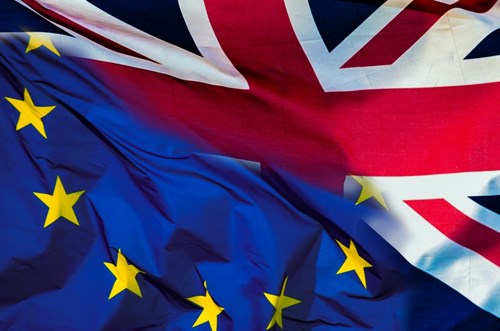There is no specific mention of crop protection solutions which begs the question, what impact will the new agreement have on members and growers?

A deal has been struck, PM Rishi Sunak has seemed to make a breakthrough and announced The Windsor Framework with EU’s Ursula Von Der Leyen on the 27th of February – the aim of this framework is to mitigate issues caused by the previous NI Protocol. It is designed to ease the free flow of trade in the UKs internal market and to protect NI’s sovereignty and place in the Union.
Previously, all goods arriving in NI were treated as if they were entering the EU. This created a hard border and added red tape to the flow of goods, burdening business with added costs, creating tensions for trade in UK and NI.
Windsor framework:
Under the new deal, it aims to address the tensions created by introducing 2 lanes; ‘green lane’ where goods are destined for the NI market only if you are a ‘trusted trader’, and the ‘red lane’ which will be treated as if it was entering EU market with checks. The green lanes will be exempt from checks and custom controls.
On the surface this looks like a much improved situation for businesses as it allows for a single market into the NI without the burden of paperwork and checks. This is a promising solution to ongoing tensions, and we look forward to seeing this bring positive outcomes for our sector. However, when looking closer at the Windsor Framework it leaves a lot of unanswered questions and seems to be open to interpretation. This lack of certainty leaves our sector in an unsure position on how to engage with the NI market.
What does this mean?
There is no specific mention of crop protection solutions which begs the question, what impact will the new agreement have on members and growers?
Previously under the protocol a series of requirements and prohibitions were in place, making the movement of certain plant/seed products not possible, the Windsor Framework rids NI from this burden and allows it to resume previous trading patterns. This is great news for growers as it allows them an opportunity to keep up with other growers across the UK. However, it makes little sense if potato seeds are available through the green lane but the tools needed to grow them are restricted – growers will be at a disadvantage if these tools are not provided and does not do much to improve their potential to keep up with other growers.
A more optimistic interpretation is that the lack of mention does not mean exclusion from the green lane. One of the main aims of The Windsor Frameworks is to protect NI’s place within the Union, so if crops are destined for GB that should mean these crops would be treated with PPP’s. We can assume the changes to movements of goods from GB to NI, including the green lane and streamlined checks, will help where PPPs are destined for the NI market only.
We welcome more clarity.
The Windsor Framework is a great step forward to resolving the ongoing pressures on trade routes to the NI market. The creation of Green lanes’ and Red lane is a promising approach to reducing any bureaucracy, it will make the flow of goods easier and timely. However there is a lot of room for interpretation which our sector is struggling to unpack due to lack of mentions of PPP’s – we therefore hope to have fruitful conversation with the government to shed more light on this situation and dispel any confusion.
07/03/2023




